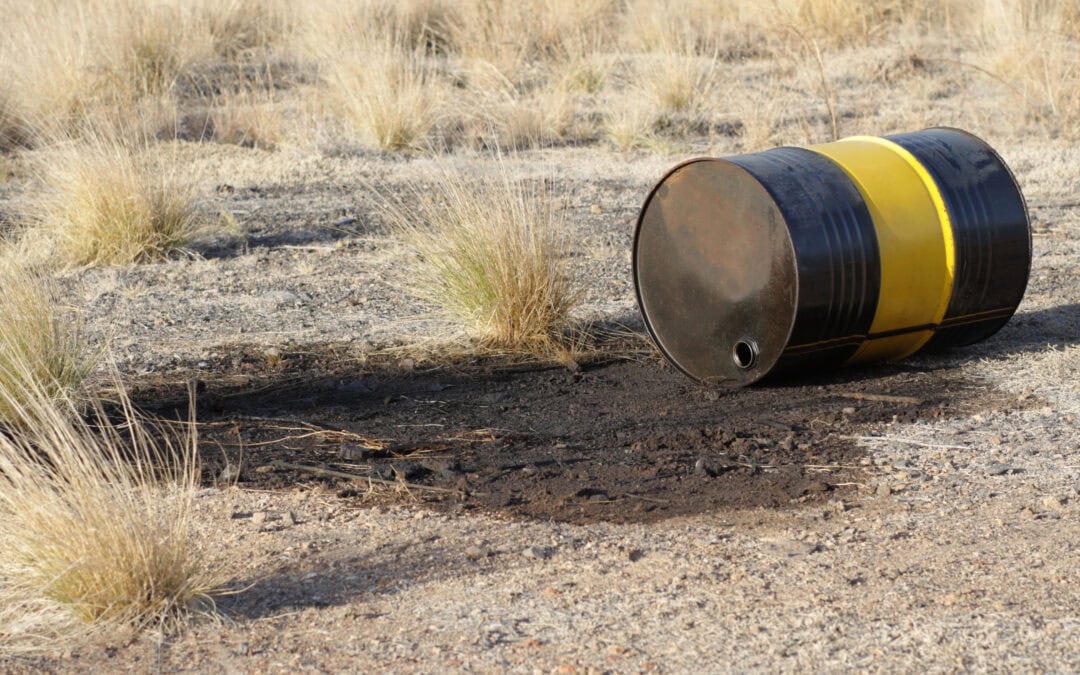When harmful substances seep into the ground, soil contamination can put our health, homes, and environment at risk. As a landowner, testing your soil for contaminants can help guide the necessary cleanup, from excavation and soil washing to chemical treatments and bioremediation.
When polluters leave behind contaminated land, a knowledgeable Legacy litigation attorney can help you pursue justice and compensation. In this blog, we’ll explain why soil contamination is a problem and what steps you can take to protect your land and your family.
What Is Soil Contamination?
Soil contamination happens when harmful substances, both natural and man-made, build up in the ground at levels that can hurt people, animals, and plants. Common pollutants include heavy metals like lead and arsenic, petroleum products such as gasoline and oil, solvents, and pesticides. When these materials enter the soil faster than nature can break them down, they pose health risks and damage local plants and wildlife. These substances can stay in the soil for years, carried by water into wells or absorbed by crops.
Common Causes of Soil Contamination
Many activities can introduce harmful toxins into the soil. Some of the most common sources, listed below, can leave lasting pockets of pollution underground.
Historic Oil & Gas Operations
Louisiana’s long history of drilling and pipeline work has left old pits and pipeline corridors behind. Many of these sites stored drilling mud, crude oil, and produced water. When containment walls break down, oil and heavy metals can flow into surrounding soils.
Industrial Spills & Leaks
Factories, refineries, and chemical plants store large volumes of liquids in tanks and drums. Over time, pipes can corrode and tanks can crack. When a spill happens, oils, acids, and solvents may seep down and stay in the ground.
Urban Runoff & Landfill Leachate
Stormwater running off streets, parking lots and rooftops picks up oil, brake dust, antifreeze, and lawn chemicals. That polluted water soaks into the soil near curbs and drains. Old landfills, especially ones without liners, produce leachate, a toxic liquid that drips into the ground.
Impacts of Soil Contamination
Soil contamination affects more than just the ground beneath our feet. When toxic chemicals enter the soil, they create a chain reaction that touches every part of our lives, from the food we grow to the water we drink and the homes we live in. Understanding these impacts helps landowners, farmers, and families see why cleaning up contaminated soil matters for public health, the environment and local economies.
Health Risks to People & Animals
Contaminated soil can poison the food chain. People who eat crops grown in tainted soil risk ingesting harmful chemicals that can damage organs, cause cancer, or impair child development. Pets, livestock, and wildlife that graze or burrow in polluted ground can suffer similar effects, including weight loss, organ failure, and even death. Direct contact can also irritate skin or trigger respiratory problems when dust is stirred up.
Damage to Plants & Ecosystems
Toxins in the soil stunt plant growth, kill beneficial microbes, and alter the balance of nutrients. Crops yield less, native plants disappear, and invasive weeds often take over. Without healthy plants, insects and animals lose food and habitat, which upsets entire ecosystems. Over time, streams and wetlands nearby can suffer too, as runoff carries pollutants into aquatic environments and harms fish, amphibians, and aquatic plants.
Property Devaluation & Cleanup Costs
Properties with known soil contamination often sell for far less than cleaner sites. Buyers fear hidden cleanup bills and legal liabilities. In Louisiana, removing pollutants can involve costly testing, excavation, and specialized treatment that runs into tens or hundreds of thousands of dollars. Even after cleanup, long-term monitoring keeps expenses high.
Legal Solutions for Landowners with Contaminated Soil
When soil suffers from past pollution, landowners often face steep cleanup bills and health risks. Legal solutions like Legacy litigation give them a way to hold former polluters accountable and recover costs.
What is Legacy Litigation?
Legacy litigation is a type of lawsuit aimed at reclaiming cleanup and damage costs from oil and gas companies whose earlier operations polluted your property. It covers cases where the contamination occurred years or even decades ago, often under old permits or in unlined pits that no longer meet today’s safety standards. By tracing liability back to those original polluters, Legacy litigation helps victims secure compensation for soil testing, remediation work, and any losses in property value.
When to Contact a Legacy Litigation Attorney
You should reach out to a Legacy litigation attorney if you own land on which oil and gas operations took place, and you have any reason to suspect your property is contaminated. Early contact ensures your legal team can preserve evidence, such as historical records of oil pits or industrial waste sites, and advise on timely notice requirements. An attorney can guide you through complex regulations, offer interim safety measures, explain your rights as a landowner, and pursue claims so you don’t bear the burden alone.
How a Legacy Litigation Attorney Can Help
Addressing soil contamination protects people, property, and future generations. As a landowner, contaminated land can also drag down your property value and expose you to costly cleanup bills. By taking prompt action, you safeguard your family’s health, preserve the environment, and maintain the value of your property.
When you work with a Legacy litigation attorney, they handle all negotiations, file claims under state and federal environmental laws, and fight for fair compensation. With an experienced attorney on your side, you won’t face these legal hurdles alone.
Don’t wait to protect your land. If you suspect soil contamination on your property, talk to Talbot, Carmouche & Marcello today. Contact us now for a free case evaluation, and take the first step toward a safer, cleaner property.

